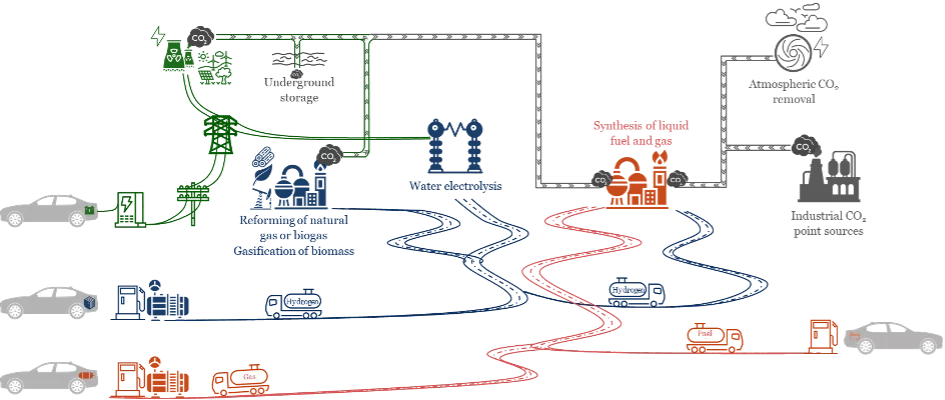The topic of mobility has been central to the activities of Technology Assessment group for years . TA has recently developed numerous quantitative and qualitative tools to assess the environmental, economic and risk performance of individual and collective means of transportation. These tools were developed within the SCCER Mobility research.
With the development of novel technologies, such as battery or fuel cell electric vehicles or also new forms of fuel production and supply, the sustainability assessment of common means of mobility has become more complex and requires the development of more sophisticated and holistic tools. For example, with vehicles equipped with an internal combustion engine, most of the environmental burden occurs during driving. This burden is now slowly shifted earlier in the life cycle of the vehicle during the manufacture phase, but also upstream the energy chain during the production of electricity and synthetic fuels . These synthetic fuels are expected to become a key contributor to decarbonizing mobility in heavy-duty freight transport and aviation.
To that effect, much of the ongoing effort regarding the sustainability assessment on mobility is focused on prospective modelling with time horizons of 2030, 2040 and 2050, under different energy scenarios. Hence, our current work on mobility is increasingly relying on our parallel efforts in producing prospective life cycle assessment databases.
Our work is carried out in collaboration with key stakeholders and supports decision making on the national and International levels.

